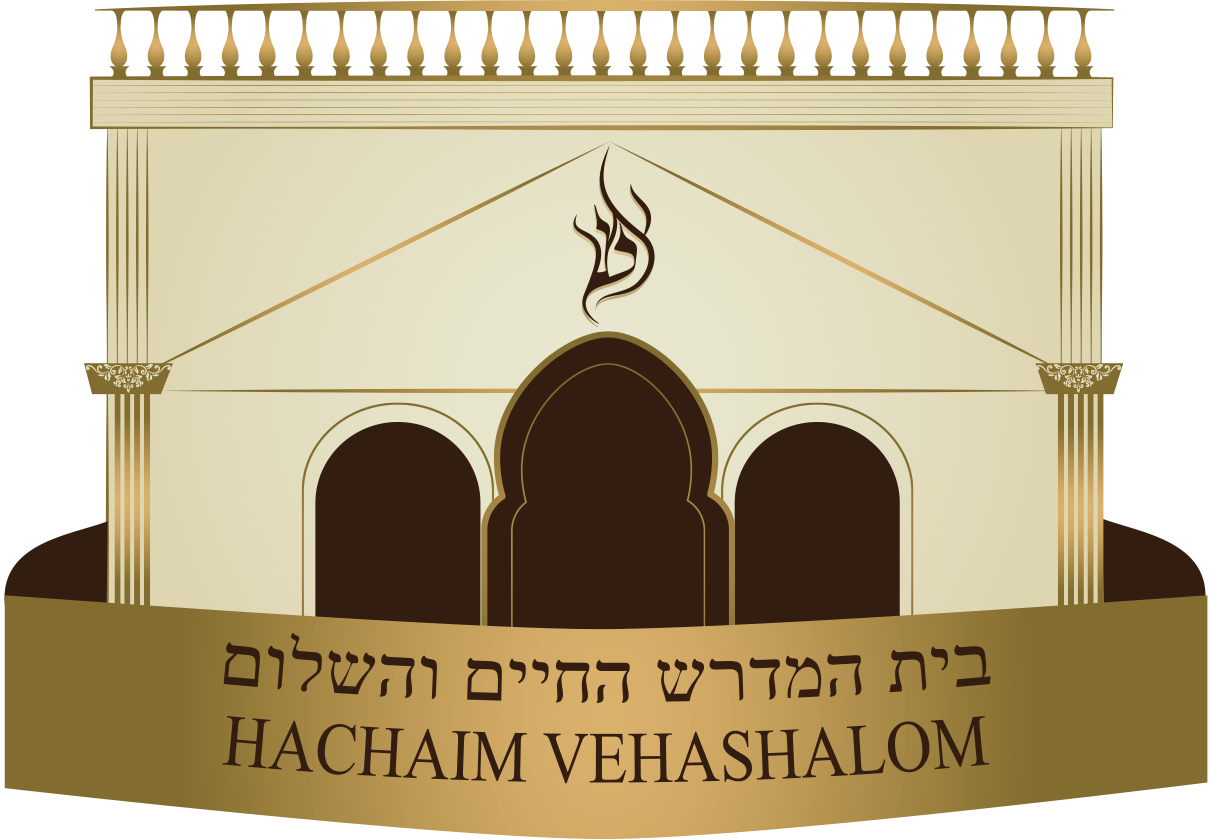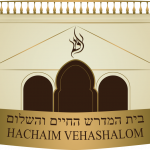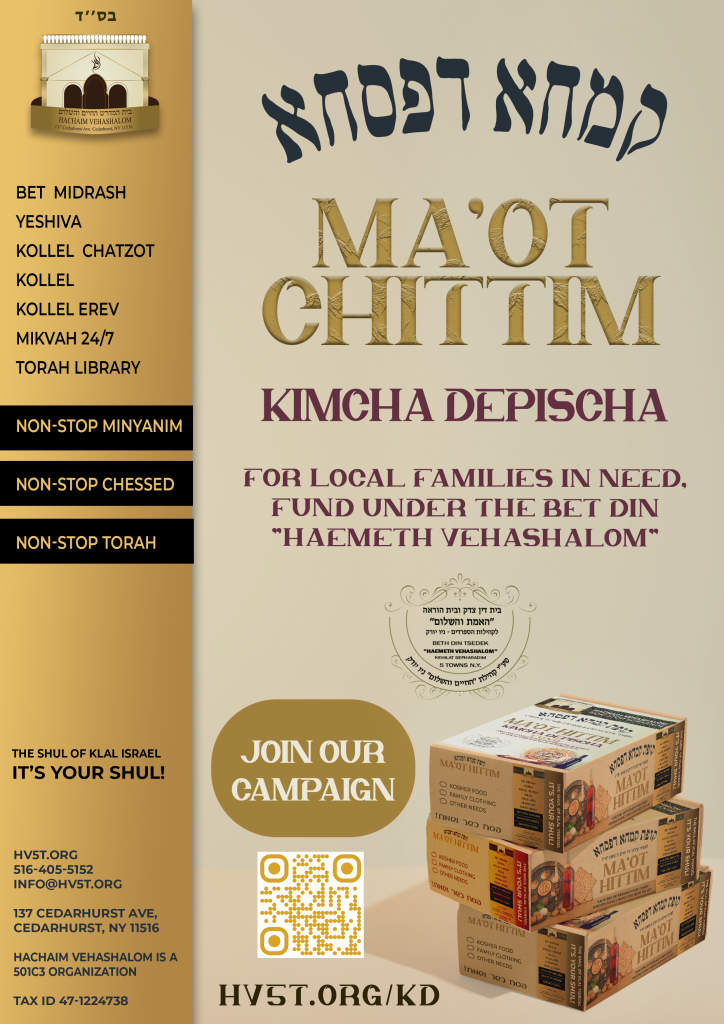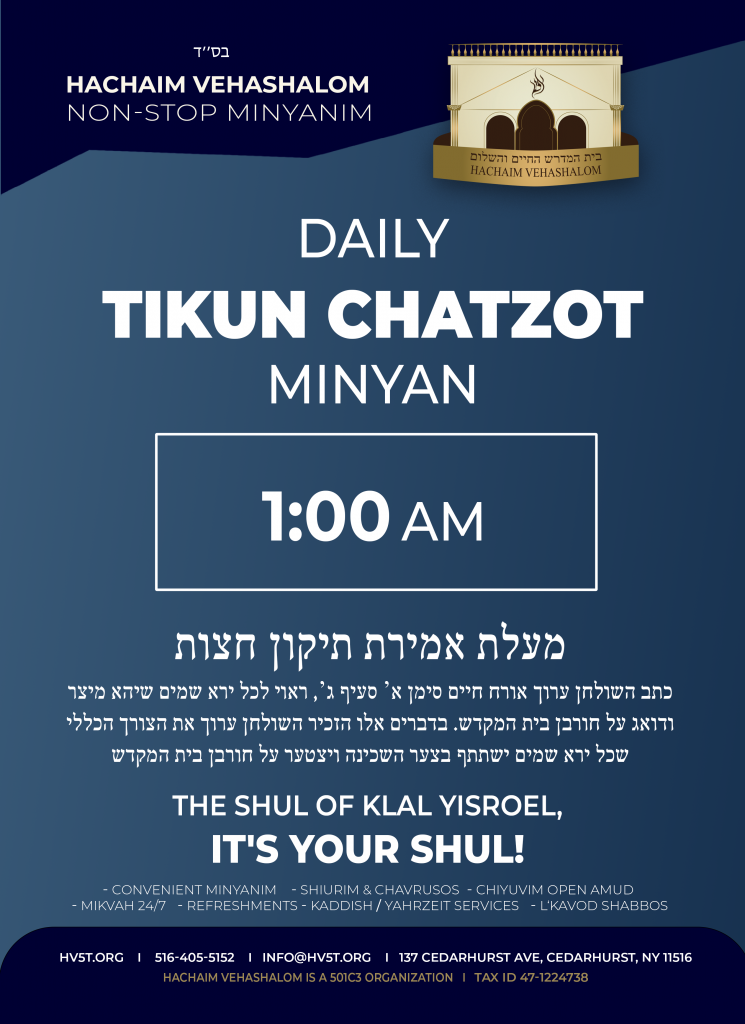Kimcha D'Pischa / Ma'ot Chitim
קמחא דפסחא ומעות חיטין
For a custum amount click here
Kimcha D'pischa | Description | Donation | Number families | Sub-total | Add to cart |
|---|---|---|---|---|---|
Food only | $360 | Max: Min: 1 Step: 1 | $0 | ||
Food and clothing | $520 | Max: Min: 1 Step: 1 | $0 | ||
Food, clothing, Gift Card | $780 | Max: Min: 1 Step: 1 | $0 |
הלכות קמחא דפסחא - מעות חיטין
In Rama, on the first sign of the Pesach laws in the Shulchan Aruch, the custom of making a magvet for the purpose of buying wheat for the poor (to prepare unleavened bread) in preparation for Passover, in which all the citizens of the city must participate[1]. Some see the origin of this magvet already in the Jerusalem Talmud[2]..
This donation is considered a mandatory tax, and the city officials were authorized to compel the city’s residents (including the scholars who are exempt from other municipal taxes) to participate in it[3]. .
1. Shulchan Aruch Orach Haim, Siman Takht, Section A..
2. “And after all the lin milin Itamar for passim and zimit twelve new. Rabbi Yossi bi Rabbi Bon for the Passover vessels between Lisha and Lithan.”.
3. Mishna Berura Siman Takht, subsection 3, 5, 6..
ה’דרכי משה’ (אורח חיים, סימן תכט) הביא את דברי ה’אור זרוע’ (הלכות פסחים, סימן רנה) שקובע את הדין של מעות חיטין: “מנהג הקהילות להשים מס על הקהל לצורך החטים, ליתן בפסח לעניי העיר”. וכן פסק ברמ”א (שם, סעיף א): “ומנהג לקנות חטים לחלקן לעניים לצורך פסח”.
מקור המנהג, כפי שמביא ה’אור זרוע’, הוא מדברי הירושלמי (בבא בתרא פרק א, הלכה ד): “אמר רבי יוסי בר בון, לחיטא דפיסחא שנים עשר חודש, בין לישא בין לתת”. מכאן שמדובר במנהג וותיק, שכבר היה נהוג בימי חז”ל, ומוזכר בתלמוד הירושלמי.
כל הפוסקים הלכו בעקבות הרמ”א, וכן המנהג, כמו שכתב ב’שולחן ערוך הרב’ (סעיף ה): “מנהג פשוט בכל ישראל שכל קהל וקהל משימין מס על בני עירן לצורך חיטים לפסח, לקנות ולחלקם לבני עירם”.






